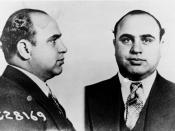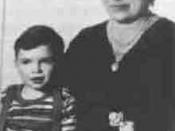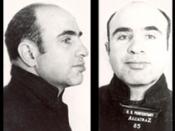Selfishness corrupted the 1920's leaving everyone to do as they pleased and forget morals. During this time period, people did what they wanted not heeding to the concerns of others. They did what they wanted disregarding rules and regulations. On January 16, 1920, the 18th Amendment passed prohibiting liquor in the United States. Some saw this as another law to break or work around. Al Capone envisioned this as a new opportunity to gain more power and money. He not only controlled the Chicago mobs; he exemplified and encouraged the rebellious mood of the 1920's. He knew how to gain the approval of Chicago's people and regulate Chicago's police and politicians. However, when it looked as if he had obtained absolute donimination, he acquired what was accredited.
Al Capone's mob was only one aspect of his power. His mob was made up of about one thousand members, most of which were experienced gunmen.
Capone and his partner Torrio took over many other gangs. The gangs they did not take over, they would go to war with. After The Northsiders ambushed Torrio causing him to near death, Torrio returned to Brooklin with thirty million dollars leaving Capone to control the entire mob. Most of Capone's gangsters portrayed Capone as a great guy to work for. They claimed he was not only a optimal business man but a loyal friend. "He never discriminated against [any of his employees] because of their religion, race or national origin, being perhaps the world's first equal employer." (Encyclo 122) This enjoyable boss never had an issue with anyone as long as they did what they were told to do. Those who were not loyal to Capone, paied a high price. Al capone's head gunmen John Scalise and Albert Anselmi gave Capone the impression that they were...


